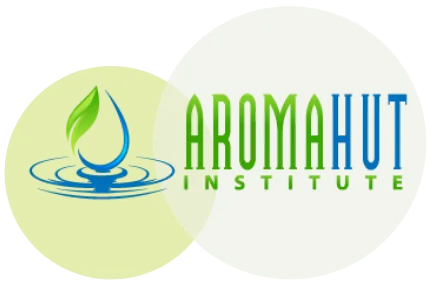Career Definition for an Aromatherapist
Aromatherapy is the practice of using the extracts of plants to promote health and well-being through holistic healing therapies. A variety of flowers, fruits, herbs, and spices are used to create essential oil blends applied to the skin or inhaled through the nose to treat emotional, physical, and psychological conditions, depending on the profile of the plants. The aroma is released into the body’s olfactory system (the nose) where it helps relax the body and calm the mind. It is helpful for treating conditions like insomnia and stress.
Aromatherapists are individual practitioners often employed in doctor’s offices, clinics, and spa resorts. They may use their skills in combination with traditional healing methods as doctors, nurses, or massage therapists. Aromatherapy works well on its own and in conjunction with other methods of treatment for overall health.
Job Description, Duties, and Requirements
What are the duties and requirements for an aromatherapist? Learn about the education and preparation needed to become certified in aromatherapy.
Aromatherapists treat patients using holistic medicinal treatments with natural oils that are applied topically or inhaled through the nose. Obtaining aromatherapy certification after high school will set you up for an interesting and fulfilling career.
Job Description
It is important to note that, while aromatherapists treat patients with natural oils, they do not diagnose or treat medical conditions. According to the National Association of Holistic Aromatherapy (NAHA), the job of an aromatherapist is to blend oils for individual clients for relaxation therapy. Aromatherapists often work in a clinical setting or in a spa that offers relaxation therapies.
Professional aromatherapists must have the practical knowledge and expertise to use various types of equipment and natural oils to make custom blends for inhalation and topical use. The equipment used may include diffusers, dry evaporators, steamers, and/or vaporizers. Aromatherapists use essential oils for detoxification, massage, and relaxation techniques for clients.
Job Duties
Like other therapy practitioners, aromatherapists take a brief medical history of a client before beginning therapy. They ask questions regarding existing medical conditions as well as previous medical history to determine treatments that will help the client without affecting other treatments and medications the patient may be taking. The practitioner will create custom essential oils for the client and apply them using massage oils, or inhalation techniques. The treatment may also be applied through sprays or salt baths.
Education Requirements
To obtain an aromatherapy certification through the NAHA, individuals are required to take a training course that includes 200 hours of training and practice in aromatherapy. Certified practitioners need to have extensive knowledge of anatomy and physiology, botany, holistic properties of therapeutic oils, blending techniques, and methods of application (topical, inhaled). As with other therapeutic practices, the NAHA has established a code of ethics for aromatherapists, which includes treating clients using holistic treatments and sharing knowledge with colleagues.
Aromatherapist Education and Skill Requirements
How much does an aromatherapist make, and what type of training is required for this type of career? The following information is provided by the BLS:
- Education Training programs are available through some postsecondary institutions, private organizations, alternative health schools.
- Certification Certification in aromatherapy can be obtained through training programs.
Job Skills
In addition to knowledge of the history, safety, and healing properties of plants, aromatherapists need to possess a combination of intuition and interpersonal skills, as well as good communication, networking, and business skills.
- Median Salary (2019)* $52,650 for alternative therapists.
- $47,350 for massage therapists (aromatherapy may be part of the service provided)
- $41,230 for skincare specialists (aromatherapy may be part of the service provided)
- Job Growth (2019-2029)* 15% for alternative therapists
Source: * U.S. Bureau of Labor Statistics
Educational Requirements
Aromatherapists are trained in the basics of aromatherapy, the properties of plants and fruits, the physical and psychological effects of scent on the body and mind, extracting and blending oils, clinical application, and business practices. Individuals can earn certificates and diplomas through various public and private organizations, secondary education schools, and alternative training programs. The training meets the standard set forth by The National Association for Holistic Aromatherapy for certification as an aromatherapist.
Required Skills
The U.S. Bureau of Labor Statistics (BLS) stated that successful aromatherapists possessed the following qualities:
● Outstanding interpersonal, intuitive, and communication skills when dealing with patients and others.
● Good networking and business skills, since aromatherapists are often responsible for generating new clients and retaining clients for themselves or for the business they work for.
Employment and Salary Outlook
Aromatherapists, massage therapists, and other unspecified therapists earned a median salary of $52,650 in 2019, according to the Bureau of Labor and Statistics. It is difficult to determine the exact number of practitioners in the U.S., as federal law does not require aromatherapists to be state-licensed. With the steady rise in popularity of alternative medicines, it is expected to have a growth increase of 15% in the next 10 years.
Career Advancement
Certified aromatherapists may be employed in a variety of settings, or may run their own small businesses with their own clientele. Many times cosmeticians and massage therapists seeking to expand their service offering will employ aromatherapists to provide services for their clients to increase their overall revenue. Spa resorts and athletic clubs often employ aromatherapists full-time. This career also has a lot of room for advancement as well. Aromatherapists employed at a spa or clinic may advance to a department director or other managerial position, while others who are self-employed may increase their clientele and open their own offices or salons, depending on their goals and aspirations.
Get started on a new career path today, sign up for our aromatherapy certification program and live the life of freedom you’ve always dreamed of.



